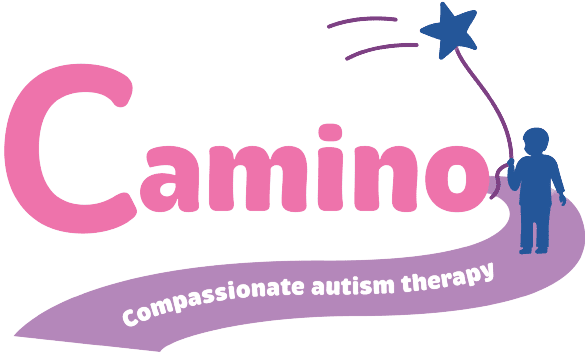Challenging behaviors can significantly impact the quality of life for children with Autism Spectrum Disorder (ASD) and their families. To effectively address these behaviors, Applied Behavior Analysis (ABA) offers a comprehensive approach known as skills-based treatment. This method combines practical functional assessment and skills-based treatment to create personalized interventions that help children develop essential skills while reducing problematic behaviors. At Camino, we are dedicated to providing customized ABA therapy that supports your child’s unique needs and promotes long-term success.
The Role of Practical Functional Assessment and Skills-Based Treatment in ABA
A critical aspect of skills-based treatment in ABA is the practical functional assessment (PFA). This assessment identifies the underlying causes of challenging behaviors by examining the relationship between environmental factors and the child’s behavior. During the PFA, therapists observe the child in various settings, analyze patterns of behavior, and identify triggers that lead to problematic actions. This thorough understanding of behavior allows therapists to develop a tailored treatment plan that targets the specific needs of the child.
Skills-based treatment builds upon the insights gained from the PFA. By focusing on teaching alternative, positive behaviors, this approach aims to replace challenging behaviors with more appropriate skills. For example, if a child exhibits aggressive behavior due to frustration with communication, skills-based treatment may involve teaching the child effective communication strategies to express their needs. This targeted intervention not only reduces the occurrence of challenging behaviors but also enhances the child’s overall functioning and independence.
What Is Skills-Based Treatment in ABA?
Skills-based treatment in ABA is a structured approach that focuses on teaching children with ASD the skills they need to thrive in their everyday lives. This method is grounded in the principles of ABA, which emphasize the importance of understanding and modifying behavior through evidence-based techniques. Skills-based treatment involves identifying the specific skills that a child needs to develop and systematically teaching those skills using positive reinforcement and other ABA strategies.
The goal of skills-based treatment (ABA) is to empower children with the tools they need to navigate their environment successfully. Whether it’s learning to communicate effectively, developing social skills, or mastering daily living tasks, skills-based treatment provides a roadmap for helping children reach their full potential. By addressing the root causes of challenging behaviors and teaching replacement skills, this approach fosters long-term behavioral change and improves the child’s overall quality of life.
Techniques Used for Skills-Based Treatment in ABA
Skills-based treatment in ABA employs a variety of techniques to help children develop the necessary skills for success. One of the primary techniques is reinforcement, where positive behaviors are rewarded to encourage their repetition. For example, a child who successfully uses a communication device to express a need may receive praise or a favorite activity as a reward. This positive reinforcement strengthens the desired behavior, making it more likely to occur in the future.
Another key technique is prompting, which involves providing cues or assistance to help the child perform a desired behavior. Over time, prompts are gradually faded as the child becomes more proficient in the skill. For instance, a therapist might initially guide a child’s hand to point to a picture on a communication board but will reduce the level of assistance as the child learns to do it independently.
Shaping is also used in skills-based therapy to gradually teach complex behaviors by reinforcing successive approximations of the target behavior. For example, if a child is learning to brush their teeth, the therapist might start by reinforcing the child to pick up the toothbrush, then apply toothpaste, and eventually brush all of their teeth.
Lastly, task analysis is employed to break down complex behaviors into smaller, manageable steps. This allows the child to learn each component of the behavior sequentially, building up to the complete task. This technique is particularly effective for teaching daily living skills, such as getting dressed or preparing a simple meal.
Benefits of Skills-Based Therapy
The benefits of skills-based therapy are far-reaching, both for the child and their family. One of the primary advantages is the reduction of challenging behaviors, which can significantly improve the child’s ability to function in various settings, including home, school, and community environments. By addressing the root causes of these behaviors, skills-based therapy not only reduces their frequency but also provides the child with alternative ways to meet their needs.
Another benefit of skills-based treatment ABA is the development of essential life skills. Whether it’s communication, social interaction, or daily living tasks, skills-based therapy equips children with the tools they need to lead more independent and fulfilling lives. As children acquire these skills, they often experience increased self-confidence and a greater sense of autonomy, which contributes to their overall well-being.
Skills-based therapy also promotes collaboration between therapists and families. By involving parents in the treatment process, this approach ensures that the skills learned in therapy are reinforced and generalized across different environments. Parent training sessions provide caregivers with the strategies they need to support their child’s progress at home, leading to more consistent and long-lasting outcomes.
Camino is an ABA therapy provider in Albuquerque, and we are committed to helping your child reach their full potential through personalized skills-based treatment. If you are interested in learning more about how practical functional assessment and skills-based treatment can benefit your child or are interested in early autism intervention in Albuquerque, please contact Camino today. Our team of experienced therapists is here to provide the support and guidance you need to help your child thrive.

